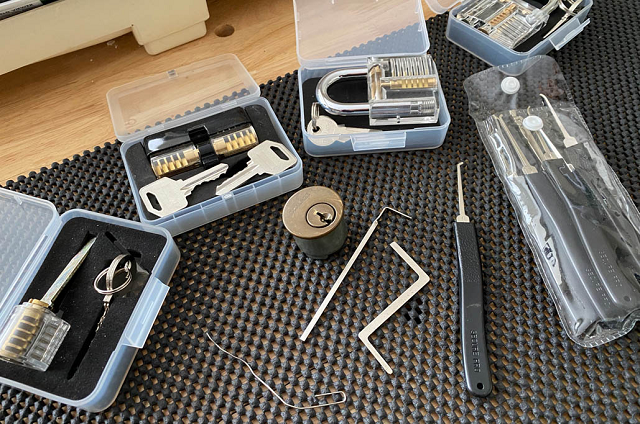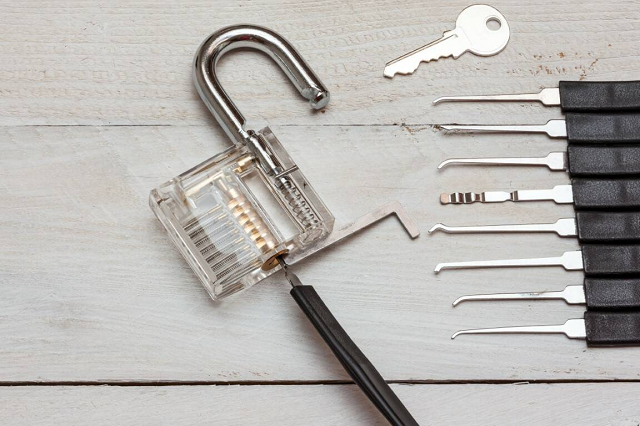Why do You Need to Practice Lock Picking Skills
2024-09-04 09:40

Lock picking, often viewed through a lens of intrigue and mystery, is a skill that has garnered attention in various contexts, from hobbyist pursuits to professional applications. While it may conjure images of heists and clandestine activities, lock picking holds significant value beyond mere curiosity. Understanding the importance of this skill can illuminate its practical applications, ethical considerations, and broader implications for personal security and problem-solving.
Understanding the Basics of Lock Picking
At its core, lock picking involves manipulating the components of a lock to open it without the original key. This skill requires a deep understanding of how different locks function, including the mechanics of pins, tumblers, and other locking mechanisms. Practicing lock picking can enhance one’s mechanical aptitude and problem-solving abilities, as it necessitates patience, precision, and a methodical approach. For enthusiasts, it can be a rewarding hobby that combines elements of engineering, psychology, and dexterity.
Practical Applications
One of the most significant aspects of practicing lock picking is its practical application in the field of security. Security professionals, locksmiths, and law enforcement officers often utilize lock picking skills to gain access to locked spaces during emergencies or investigations. For instance, a locksmith may need to open a door for a client who has lost their keys, while law enforcement may require access to a property in urgent situations. By buying Practice Locks, and learning lock picking skills, these professionals can perform their duties more effectively and efficiently.
Moreover, understanding lock picking can also lead to improved security measures. By learning how locks can be manipulated, individuals can better assess the vulnerabilities in their security systems. This knowledge empowers them to choose more secure locks and implement additional protective measures, ultimately enhancing their safety and that of their property. In this way, lock picking serves as a double-edged sword; while it can be used for illicit purposes, it also fosters a greater awareness of security practices.
Ethical Considerations

The ethical implications of lock picking cannot be overlooked. While the skill can be used for nefarious purposes, it is essential to approach the practice with a strong moral compass. Many lock picking enthusiasts advocate for responsible use of their skills, emphasizing the importance of consent and legality. For example, practicing on one’s locks or using practice locks designed for educational purposes is a responsible way to hone this skill. Engaging in lock picking without permission, however, is illegal and unethical.
The ethical dimension of lock picking also extends to the broader conversation about security and privacy. In an age where technology increasingly governs our lives, understanding the mechanics of physical security can lead to more informed discussions about digital security as well. Just as one must be aware of the vulnerabilities in physical locks, so too must individuals recognize the potential weaknesses in their online security measures. This holistic understanding of security can foster a culture of vigilance and responsibility.
Enhancing Problem-Solving Skills
Practicing lock picking can significantly enhance one’s problem-solving skills. The process requires critical thinking, creativity, and adaptability. Each lock presents a unique challenge, and successful lock pickers must develop strategies to overcome these obstacles. This practice can translate into other areas of life, where individuals may encounter complex problems that require innovative solutions. The patience and persistence cultivated through lock picking can also be beneficial in various professional and personal contexts.
Furthermore, the act of lock picking can serve as a metaphor for overcoming challenges. Just as a lock picker must navigate the intricacies of a lock, individuals often face obstacles in their lives that require careful consideration and strategic thinking. By embracing the mindset of a lock picker, one can approach challenges with a sense of curiosity and determination, ultimately leading to personal growth and resilience.

In conclusion, the significance of practicing lock picking skills extends far beyond the realm of curiosity and entertainment. It encompasses practical applications in security, ethical considerations regarding the responsible use of skills, and the enhancement of problem-solving abilities. As individuals engage with this skill, they not only develop a deeper understanding of mechanical systems but also cultivate a mindset that values critical thinking and ethical responsibility. Whether pursued as a hobby or a professional skill, lock picking offers valuable lessons that resonate in various aspects!

 Like Us on Facebook to enjoy 5% discount
Like Us on Facebook to enjoy 5% discount